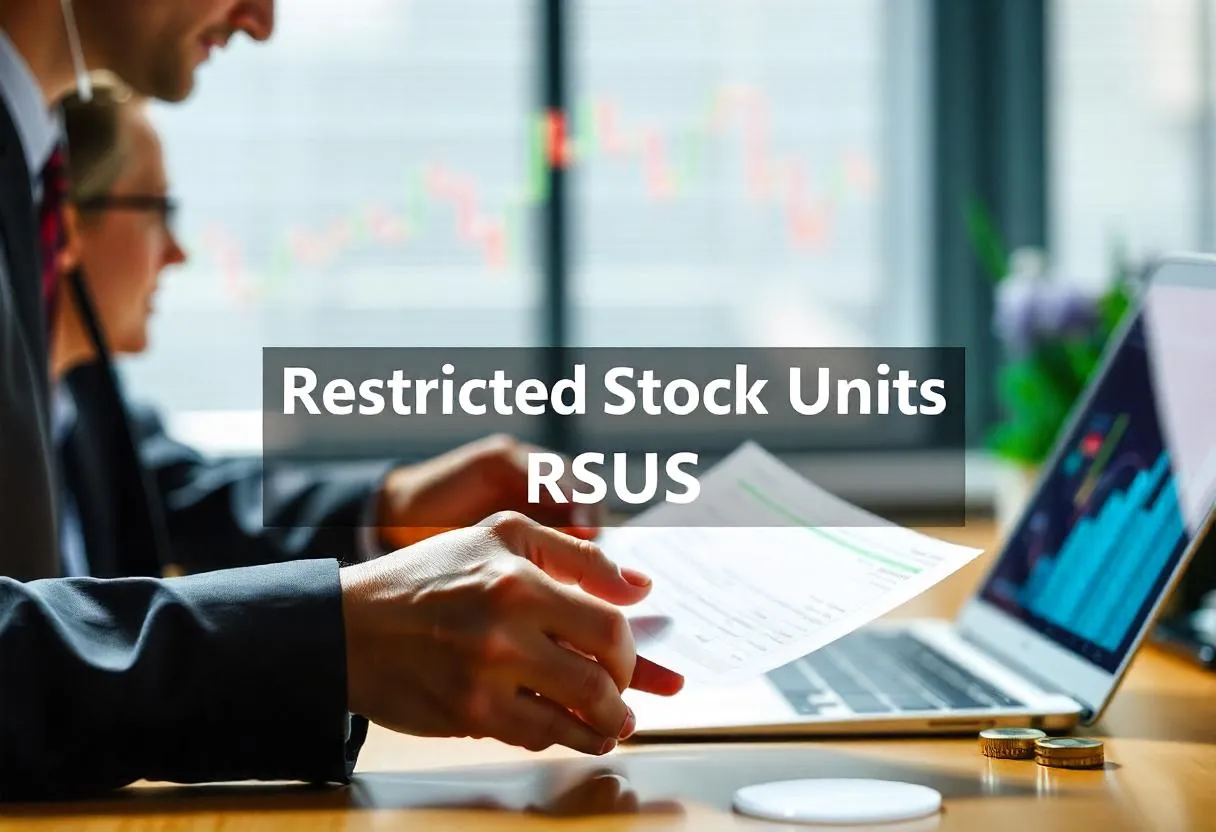Restricted Stock Unit (RSU): How It Works and Pros and Cons

Have you ever received RSUs as part of your compensation and wondered what to do with them? Or perhaps you're curious about how they might impact your financial future? RSUs are an increasingly popular form of equity compensation, but they come with unique rules and opportunities. This guide will break down how RSUs work, their advantages and disadvantages, and how you can manage them effectively to maximize their value.
Key Takeaways
- What are RSUs? Restricted Stock Units (RSUs) are shares granted by an employer, subject to conditions like vesting schedules.
- How They Work: RSUs become yours after meeting conditions, but they are taxed as ordinary income at vesting, with additional capital gains tax on future profits.
- Advantages: RSUs provide financial growth potential with no upfront cost, aligning employees’ goals with company success.
- Disadvantages: Tax implications, lack of immediate ownership, and concentrated risk in company stock are key drawbacks.
- How to Manage RSUs: Plan for taxes, diversify your portfolio, and monitor stock performance to maximize the benefits.
What Are Restricted Stock Units (RSUs)?
Restricted Stock Units (RSUs) are a form of equity compensation offered by employers. Essentially, they are promises to grant shares of company stock, but only after certain conditions are met. These conditions typically include:
- Vesting Schedule: Shares are distributed over time or when performance milestones are achieved.
- Restrictions: RSUs cannot be sold, transferred, or cashed out until vested.
Once the vesting conditions are met, the RSUs convert into company stock, becoming an asset that the employee can sell, hold, or transfer.
How Do RSUs Work?
Understanding the mechanics of RSUs is key to unlocking their value. Here's a step-by-step overview:
- Grant Date: The employer grants RSUs, specifying the number of units and the conditions for vesting.
- Vesting Period: Employees must meet specific conditions to receive shares:some text
- Time-Based Vesting: Shares vest over a set period (e.g., 25% annually for four years).
- Performance-Based Vesting: Shares vest after achieving milestones like revenue goals.
- Vesting and Ownership: Once vested, the RSUs become shares owned by the employee, who can hold or sell them. At this point, the value of the vested shares is considered taxable income.
- Taxation: RSUs are taxed as ordinary income at the time of vesting. Any gains or losses from selling the stock later are subject to capital gains tax.
Hypothetical Scenario: John works for a tech company and receives 1,000 RSUs with a four-year vesting schedule (25% per year).
- Year 1: 250 shares vest. If the stock price is $50 per share, John reports $12,500 as taxable income.
- Years 2-4: Each year, an additional 250 shares vest, taxed based on the stock's value at the time of vesting.
- If John sells his original Year 1 shares later at $60 per share, he pays capital gains tax on the $10-per-share profit.
Advantages of RSUs
Understanding the mechanics leads to appreciating their benefits. RSUs offer several advantages:
- Employee Incentive: RSUs align employees' goals with the company's success, encouraging long-term commitment and productivity.
- No Upfront Cost: Unlike stock options, RSUs don’t require employees to purchase shares upfront.
- Potential for Growth: If the company’s stock performs well, RSUs can result in substantial financial rewards.
- Simplified Process: RSUs automatically transfer ownership upon vesting, removing the need for complex transactions.
Disadvantages of RSUs
Despite their benefits, RSUs have drawbacks to consider:
- Tax Implications: RSUs are taxed as ordinary income upon vesting, which can lead to a hefty tax bill if the stock value is high.
- Lack of Immediate Ownership: Employees don’t have access to the shares until they vest, limiting flexibility.
- Concentrated Risk: Holding too much company stock can expose employees to financial risk if the company’s performance declines.
- No Dividends Before Vesting: Unvested RSUs typically don’t qualify for dividends, which limits early financial benefits.
Strategies for Managing RSUs
Managing RSUs effectively can help you maximize their value and avoid pitfalls. Here are some practical strategies:
- Plan for Taxes: Set aside a portion of your RSU value to cover taxes at vesting. A tax advisor can help you navigate withholding requirements.
- Diversify Investments: Avoid over-reliance on company stock by selling some vested RSUs and reinvesting in other asset classes.
- Time Sales Strategically: To minimize capital gains taxes, consider holding shares for at least a year after vesting. (long-term capital gains taxes are typically less than short-term capital gains taxes)
- Monitor Stock Performance: Track your company’s stock price to decide the best time to sell.
How optimized is your portfolio?
PortfolioPilot is used by over 40,000 individuals in the US & Canada to analyze their portfolios of over $30 billion1. Discover your portfolio score now:






